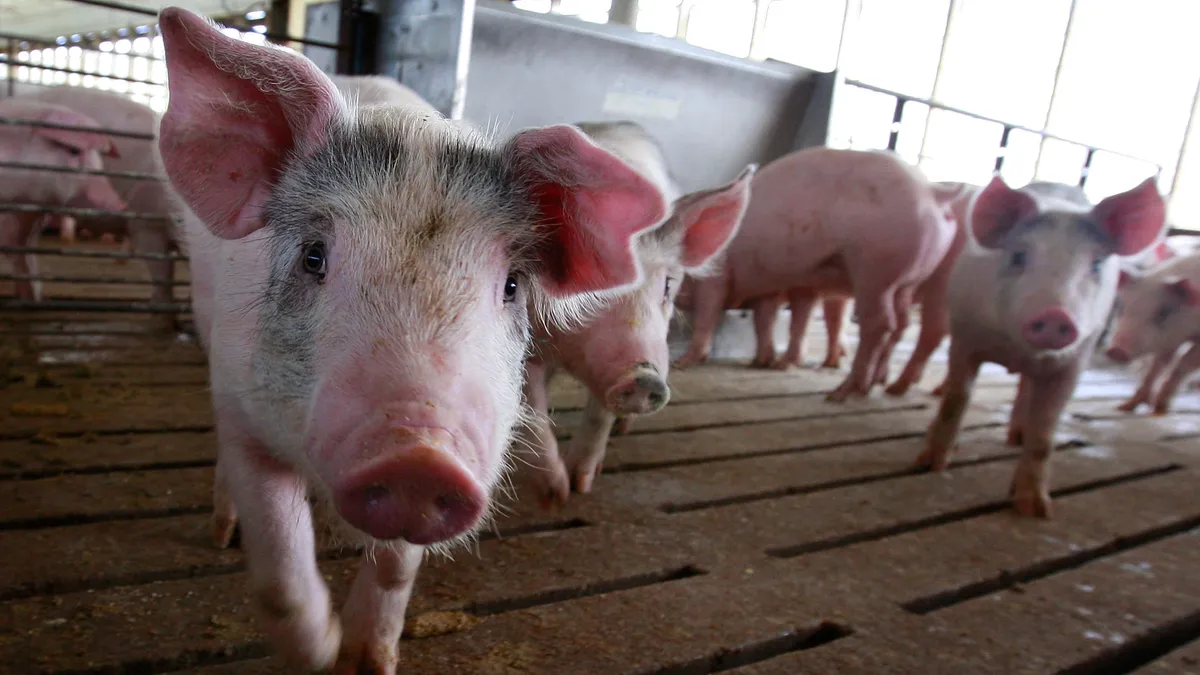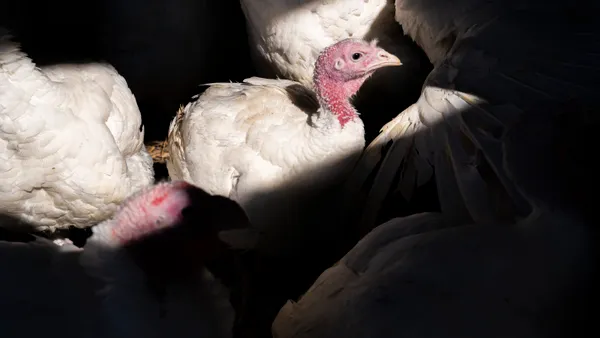Dive Brief:
-
Triumph Foods and a group of Midwest pork producers are challenging the constitutionality of Massachusetts’ Question 3 law and others that set minimum animal housing requirements.
-
The plaintiffs filed a lawsuit last week in the U.S. District Court of Massachusetts, seeking immediate relief from the law before it takes effect Aug. 24, and to stay enforcement until litigation is complete. They argued the law, approved by voters in 2016, creates challenges to interstate commerce and places burdensome costs on pork producers located outside of Massachusetts.
-
The complaint came months after the U.S. Supreme Court ruled in favor of California’s updated animal housing regulations, known as Proposition 12. Massachusetts officials had agreed to halt implementation of Q3 until the high court ruled on Prop 12.
Dive Insight:
California and Massachusetts’ laws impose housing standards for pork, but producers argue Q3 goes further by not allowing the transshipment of whole pork through the state.
This nuance set off a number of lawsuits filed by restaurant, hospitality and agriculture groups seeking to stop Q3’s implementation. According to the National Pork Producers Council, the law would affect an estimated $2 billion of pork that moves into neighboring New England states.
Triumph Foods argued the Supreme Court’s Prop 12 ruling was based on narrow claims, noting in a statement that justices raised concerns "about other possible constitutional violations that may exist."
The Biden administration’s Solicitor General Elizabeth Prelogar raised questions last year surrounding the discriminatory impact on other states, due process violations and potential interference with the federal government’s food safety obligations.
To give the industry some more breathing room, California pushed its Prop 12 implementation date to Jan. 1, 2024, for pork already in the supply chain. Last month, a Massachusetts federal judge extended a stay of implementation for Q3 until August 23.











